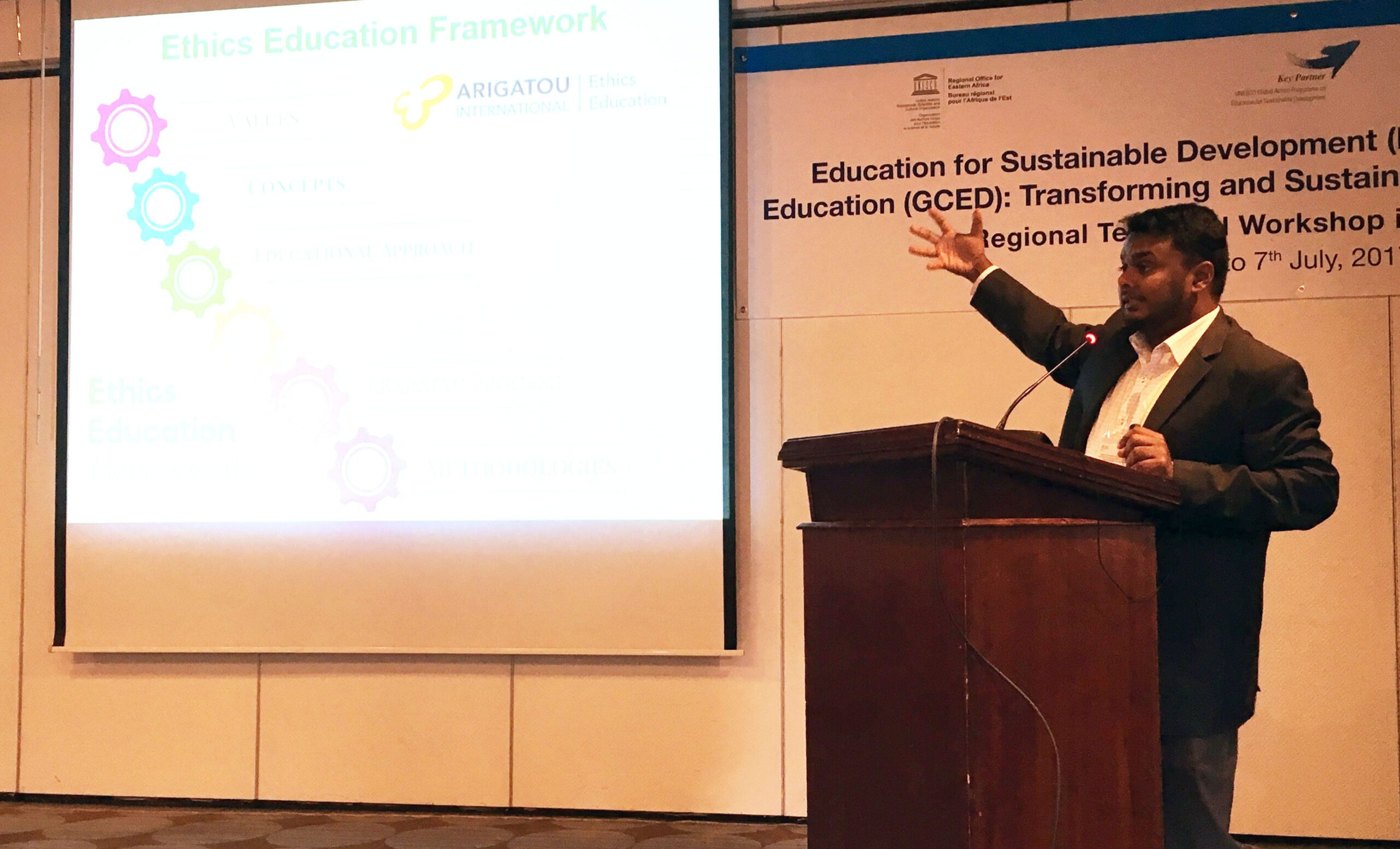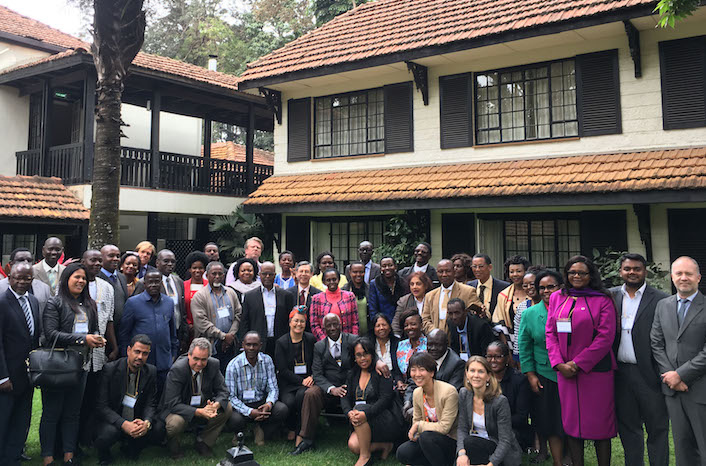
Within the framework of the 2030 Education Agenda, the UNESCO Regional Office for Eastern Africa, with the support of the Government of Japan, organized a regional technical workshop titled “Education for Sustainable Development (ESD) and Global Citizenship Education (GCED): Transforming and Sustaining Our World Through Learning”. The workshop aimed to support member states unpacking the Sustainable Development Goal (SDG) 4.7 in their national policies and practices.
The event was held in Nairobi from 4 to 7 July, bringing together over 80 representatives from Comoros, Djibouti, Kenya, Madagascar, Mauritius, Seychelles, Somalia, South Sudan, Tanzania and Uganda, as well as partners, such as IOM, UNFPA, UNICEF, UNEP, UNHCR, UNWOMEN, WFP, Arigatou International, Aga Khan Foundation, Interpeace, JICA, Teachers Against Violent Extremism and the Southern African Development Community (SADC).
The workshop was an opportunity to clarify frameworks and concepts of ESD and GCED, as well as the monitoring of the SDG 4 Target 4.7. Four thematic areas outlined further concepts and good practices from countries and key partners: (1) Promoting peace education/prevention of violent extremism through education (PVE-E), (2) ESD and the Global Action Programme, (3) Empowering learners through health education for sustainable lifestyles, and (4) Defining and addressing GCED through inclusion (including gender equality) and cultural diversity.
On this occasion, Arigatou International Geneva was invited to present ethics education as an approach to strengthening GCED and ESD through transformative pedagogies. To this end, Mr. Suchith Abeyewickreme, representative of the Geneva office, shared about the successful implementation of the Learning to Live Together Programme in Tana River, Kenya in partnership with the Ministry of Education, Science and Technology, Kenya and the UNESCO Office for Eastern Africa.
Deliberations and reflections at the meeting highlighted the importance of comprehensive strategies which include whole-school approaches, community engagement, teacher empowerment, transformative pedagogies, and curriculum strengthening to reinforce GCED. Countries’ representatives, while sharing their good practices, also discussed their pressing challenges, as the limited local understanding on GCED and the need to be context sensitive.
While countries were invited to plan individually key actions to strengthen GCED and ESD in their education systems, a collective output to establish a Community of Practice in the region emerged from the workshop.
As Arigatou International Geneva we look forward to engaging both with the individual countries as well as the regional Community of Practice with our technical contributions. Arigatou International Geneva is thankful to UNESCO Office for Eastern Africa for extending this invitation.
